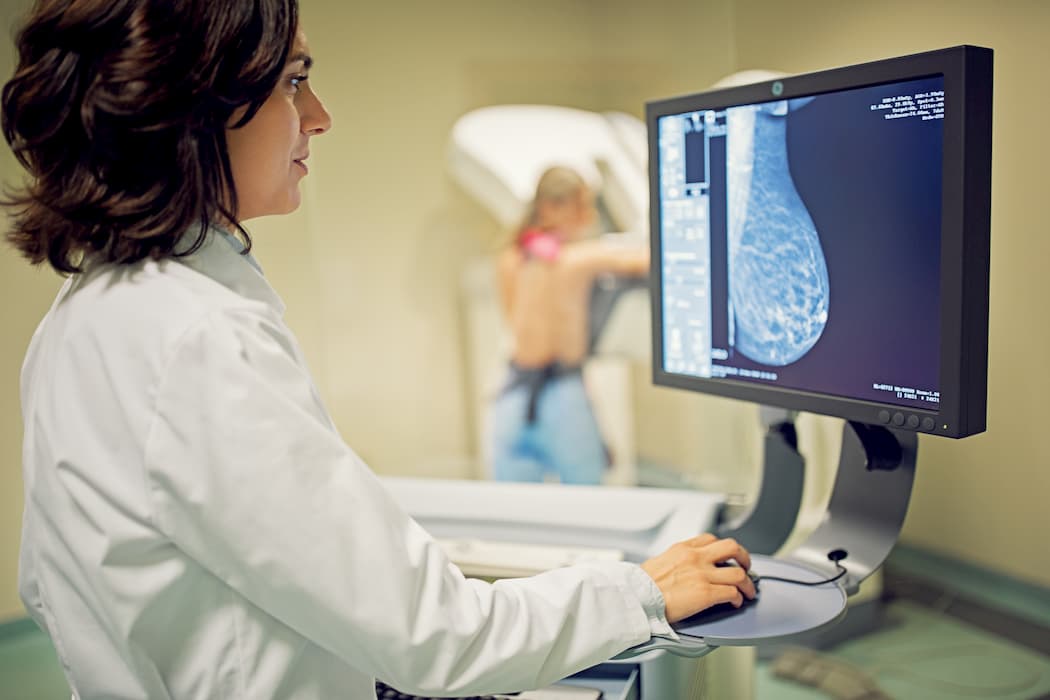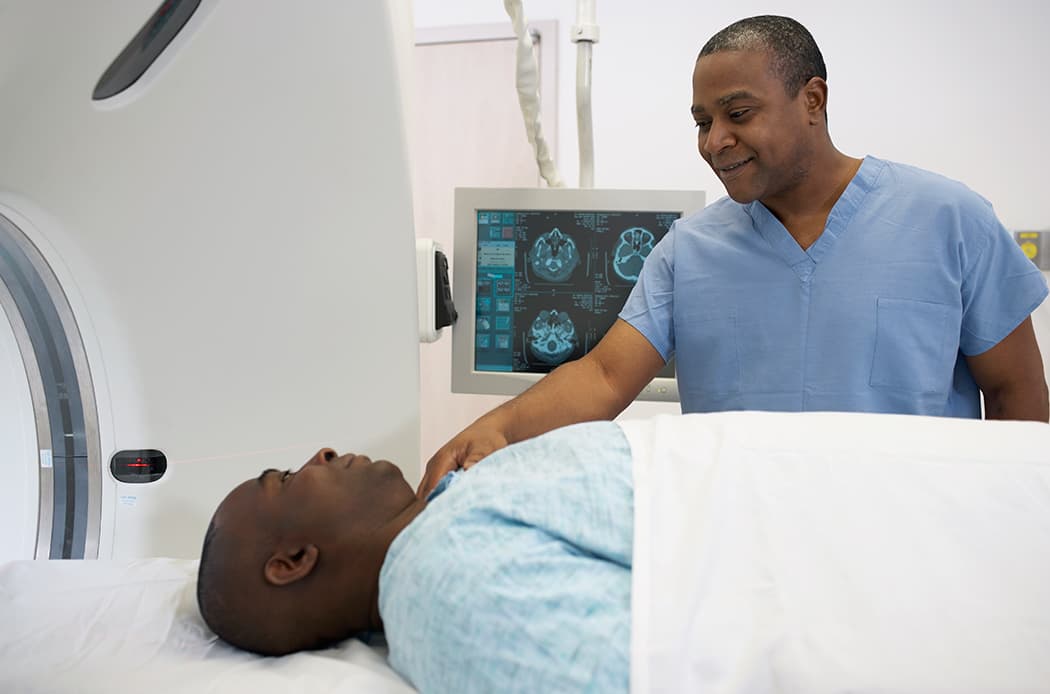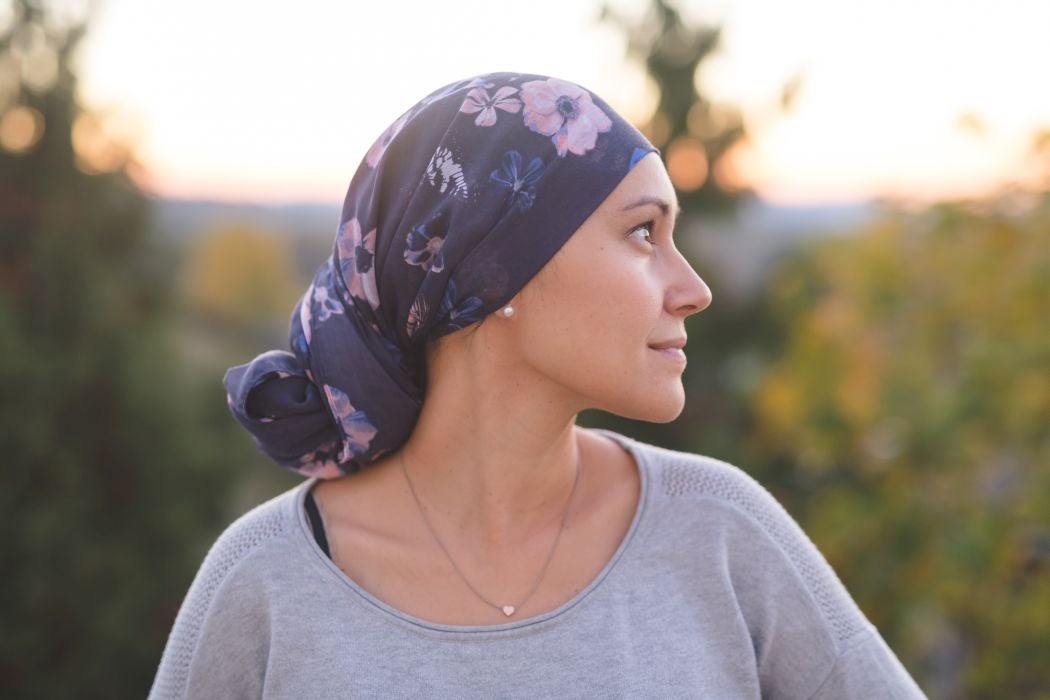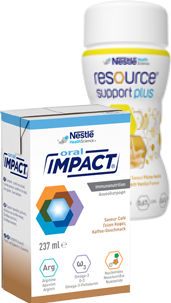Cancer: What Is It, Risk Factors and Stages
It’s only natural to feel scared and anxious after receiving such news, but treatments have come a long way, and the chances of recovery greatly increase with an early diagnosis.1

The cancer diagnosis varies from person to person, and only the doctor responsible for the patient can tell what kind of treatment is more suitable. However, seeking information about the disease can help you understand and cope with it.
What is cancer?
Cancer is not a single condition, but rather a broad name given to a set of more than 100 diseases. What they all have in common is the fact that they are caused by the disordered growth of cells, which multiply and form tumors.
This can happen in a specific part of the body, e.g., in an organ, such as the lung or liver, or in a tissue, such as the skin or blood. Sometimes, however, cancer can spread to other parts of the body through the bloodstream or lymphatic vessels, in a phenomenon called metastasis.1
Depending on how the disordered growth of cells happens, tumors can be benign or malignant:1
- Benign tumors - In such cases, the abnormal cells multiply more slowly. Although they do not invade neighboring tissue and metastasis does not occur, they might compress parts of the body near the tumor. Benign tumors usually pose no risk to one’s health.1
- Malignant tumors - These happen when cancer cells multiply rapidly. Malignant cancers might invade nearby areas and cause metastasis. They can affect the patient’s health and life depending on how they progress.1
What are the risk factors for cancer?
Risk factors for the development of cancer can be biological, environmental and lifestyle related. Among the risk factors that can be altered/controlled are:1,5
- Smoking - Smoking is the main cause of lung, larynx, mouth and esophagus cancer, as well as increasing the chances of having several others. About 42% of these cancers are estimated to be caused by the use of tobacco or even being exposed to its smoke;
- An unhealthy diet - A poor and unbalanced diet high in sugar or fat can have negative consequences, as well as being a risk factor for other issues such as obesity and cardiovascular diseases;
- Little physical activity - Having a sedentary lifestyle, e.g., sitting and lying down most of the time, can increase the risk of cancer, while exercising regularly can lower the risks;
- Overweight and obesity - These increase the risk of several types of cancer, such as esophageal, intestine, liver and thyroid. A significant amount of common cancer cases could be avoided by keeping a healthy amount of body fat, among other things;1
- Excessive alcohol consumption - Although there are no known safe levels of consumption for preventing cancer, it is a fact that the excessive consumption of alcohol increases the cancer risks of various types, such as mouth, pharyngeal (throat), laryngeal, esophageal, liver, breast, colorectal and rectal;
- Excessive sun exposure - The main source of ultraviolet radiation is the sun, and being constantly exposed to it can contribute to the occurrence of skin cancer.
Risk factors that are out of a person's control include:1
- Age - Risk increases with age for most types of cancer;1
- Ethnicity - Risks may be associated with genetic characteristics of specific groups;1
- Heredity - 4% of all cancer cases are from inherited genes;1
- Sex - Some types of cancer can only occur in one sex because of where they develop (such as the prostate or the cervix), or they are more common in males (e.g. bladder) or females (e.g. breast).1
What are the stages of cancer?
Noninvasive cancer - This is the first stage, also known as carcinoma in situ. The cancer cells are in the same layer of tissue in which they developed; they have not yet spread to other layers. Most noninvasive cancers have a higher chance of cure when diagnosed before progressing to the invasive phase. This classification does not apply to bloodstream cancer, since blood has no layers of tissue.1, 2
Invasive cancer - At this stage, cancer cells reach other layers of the tissue in which they have developed and manage to get to the bloodstream and lymphatic vessels. With this, they can spread to other parts of the body and form new tumors, which is the metastasis.1, 3
Many types of cancer have recovery treatments, especially when diagnosed in the early stages. In such cases, there are higher chances of recovery. Additionally, adopting healthier life habits is also fundamental to gain more quality of life at this moment.¹ Learn how to be well prepared for the cancer treatment.
References:
1 - Basic Approaches to the Cancer Control (“ABC do câncer: abordagens básicas para o controle do câncer”). Available at: https://www.inca.gov.br/sites/ufu.sti.inca.local/files//media/document//livro-abc-4-edicao.pdf. Access on: October/2019.
2 - International Statistical Classification of Diseases and Related Health Problems (ICD - 10): Chapter II: Neoplasms – In situ neoplasms (D00-D09). Available at: https://icd.who.int/browse10/2010/en#/D00-D09. Access on: October/2019.
3 - NCCN Guidelines for Patients: Invasive Breast Cancer. Available at: https://www.nccn.org/patients/guidelines/breast-invasive/4/index.html#zoom=z. Access on: October/2019.
4 - A.C. Camargo Cancer Center. Available at: https://www.accamargo.org.br/sites/default/files/2019-08/cartilha_CancerMama.pdf. Access on: October/2019.
5 - Tobacco & cancer treatment outcomes. Available at: https://apps.who.int/iris/bitstream/handle/10665/273077/WHO-NMH-PND-TKS-18.1-eng.pdf?ua=1. Access on: January/2020.
Know more about the subject

Cancer Survivorship: Stages, Statistics, And Care

Eating well after cancer: your diet after chemotherapy
A healthy diet after chemotherapy can help you regain your strength and promote good health.

Navigating Nutrition: Colon Cancer Diet Advice
Eating well and following a balanced, nutritious diet is one of the best ways you can prepare for colon cancer treatment 1. But what is a healthy ‘colon cancer diet’?

Radiotherapy

Complementary Therapies to Reduce Cancer’s Side Effects
They have scientifically-proven benefits and can be used to improve patients’ well-being.1

Common Questions About Hair Loss During Cancer Treatment
Although this is deeply associated with cancer treatment, not all people lose their hair



